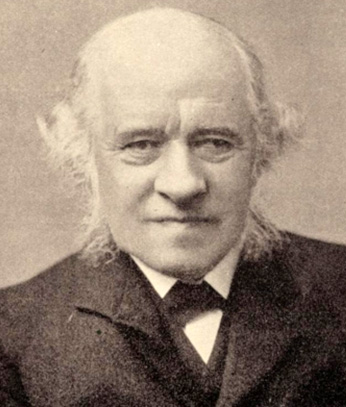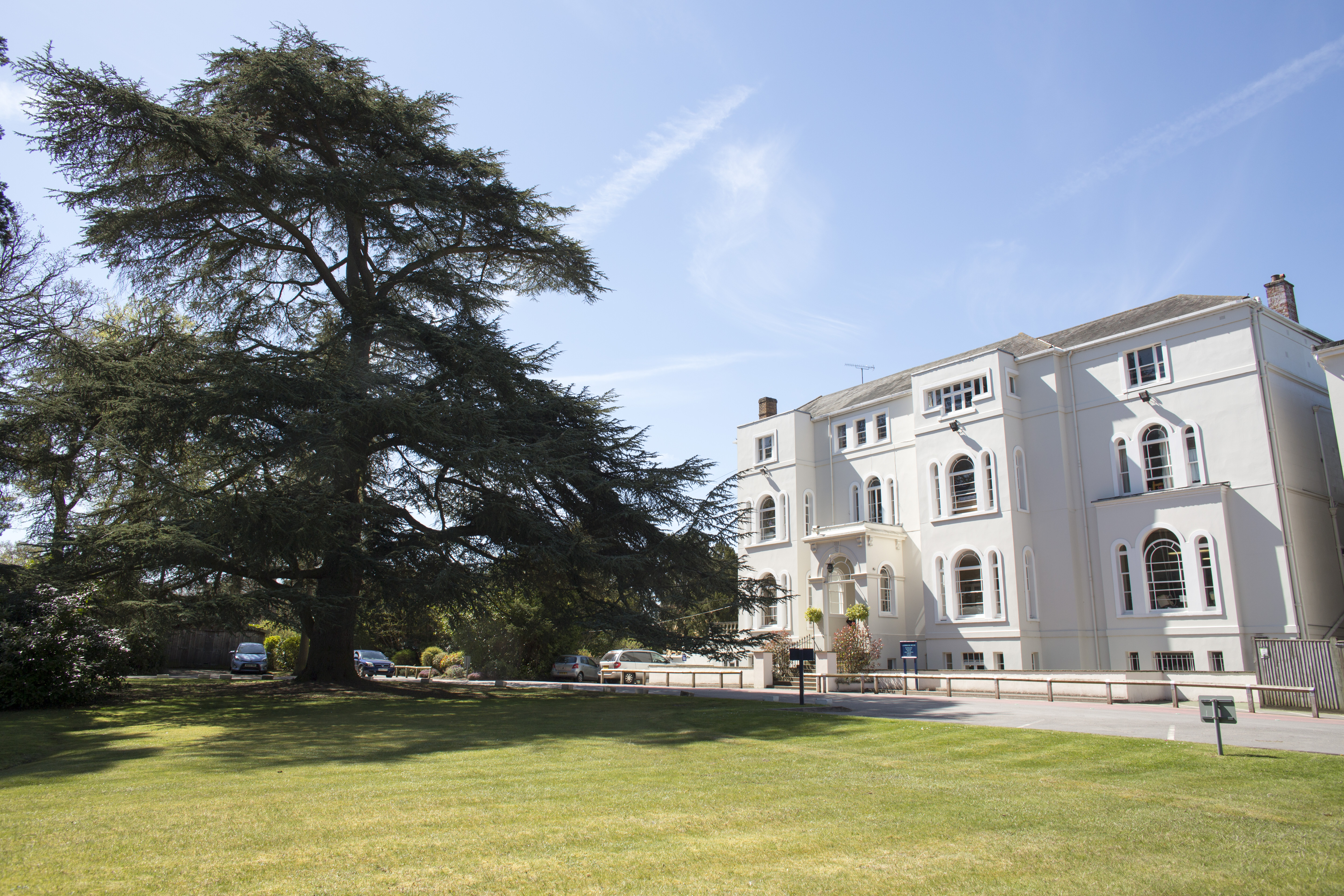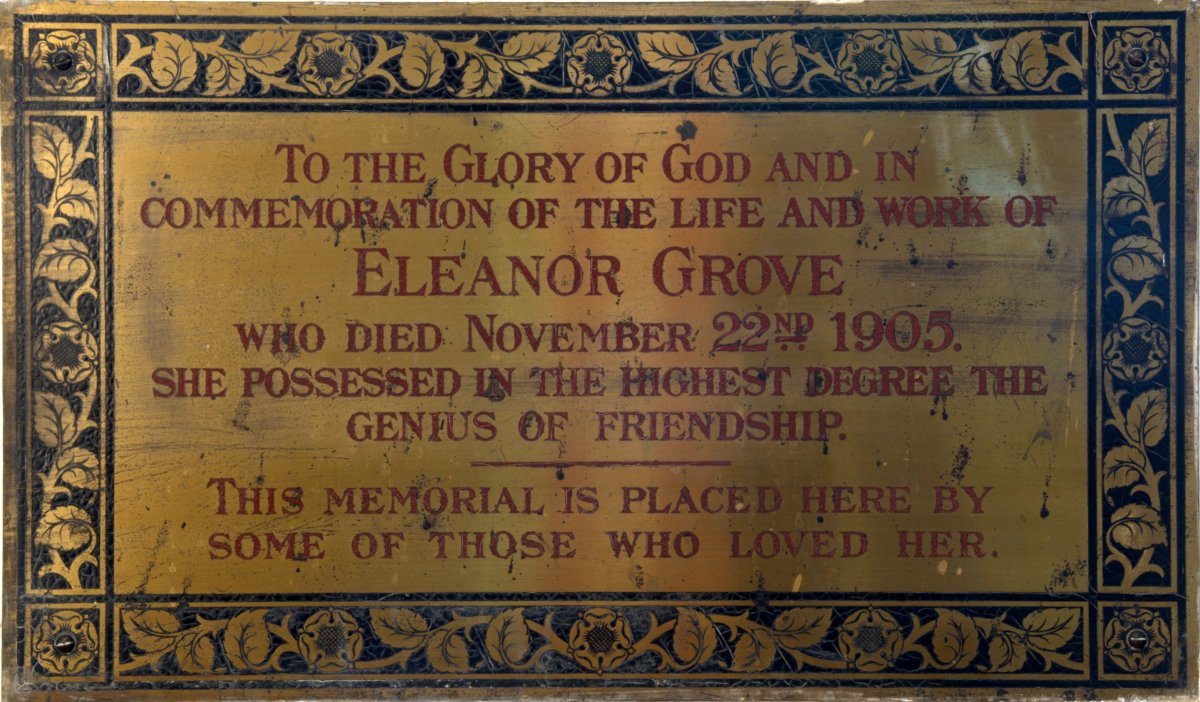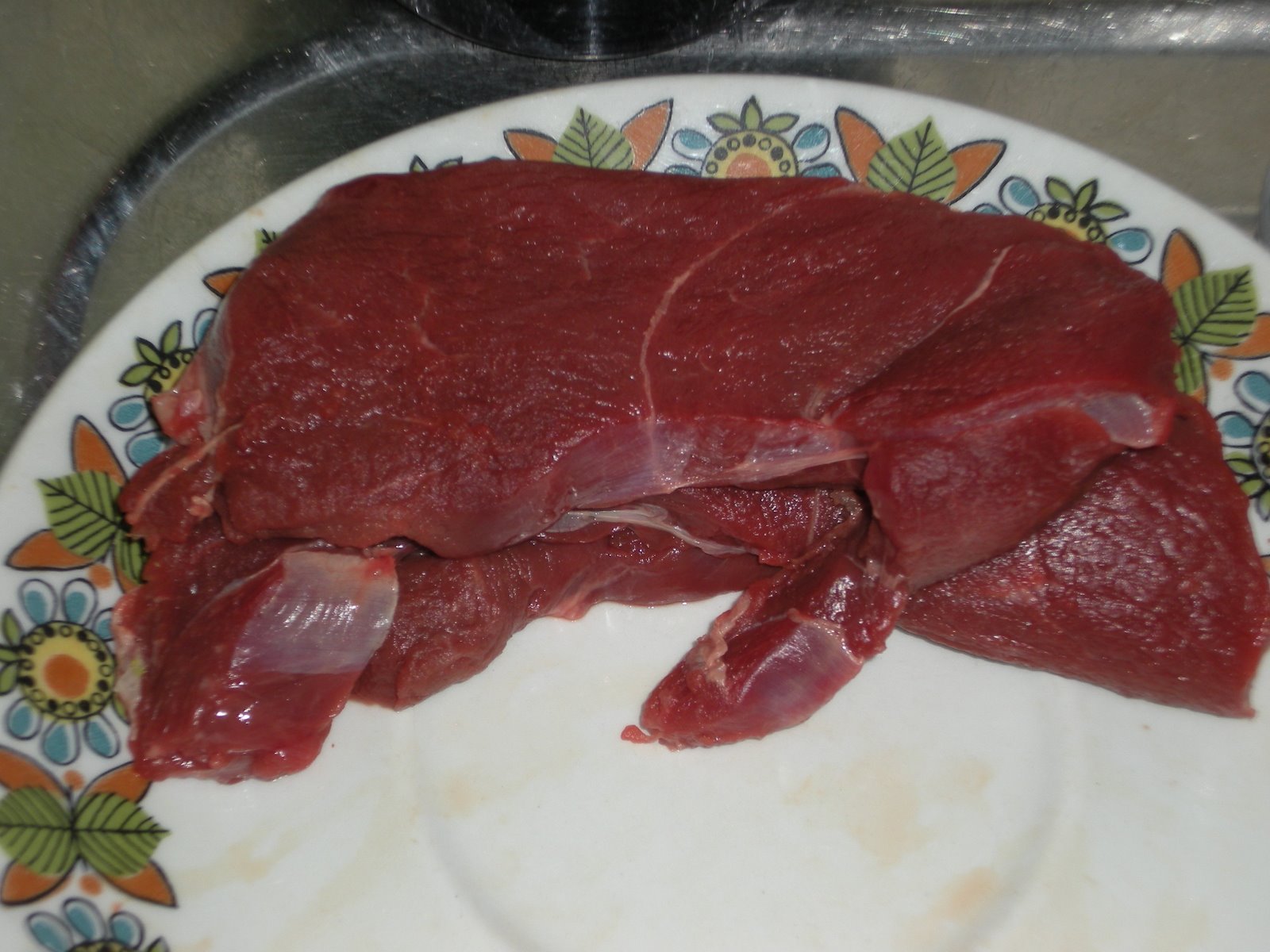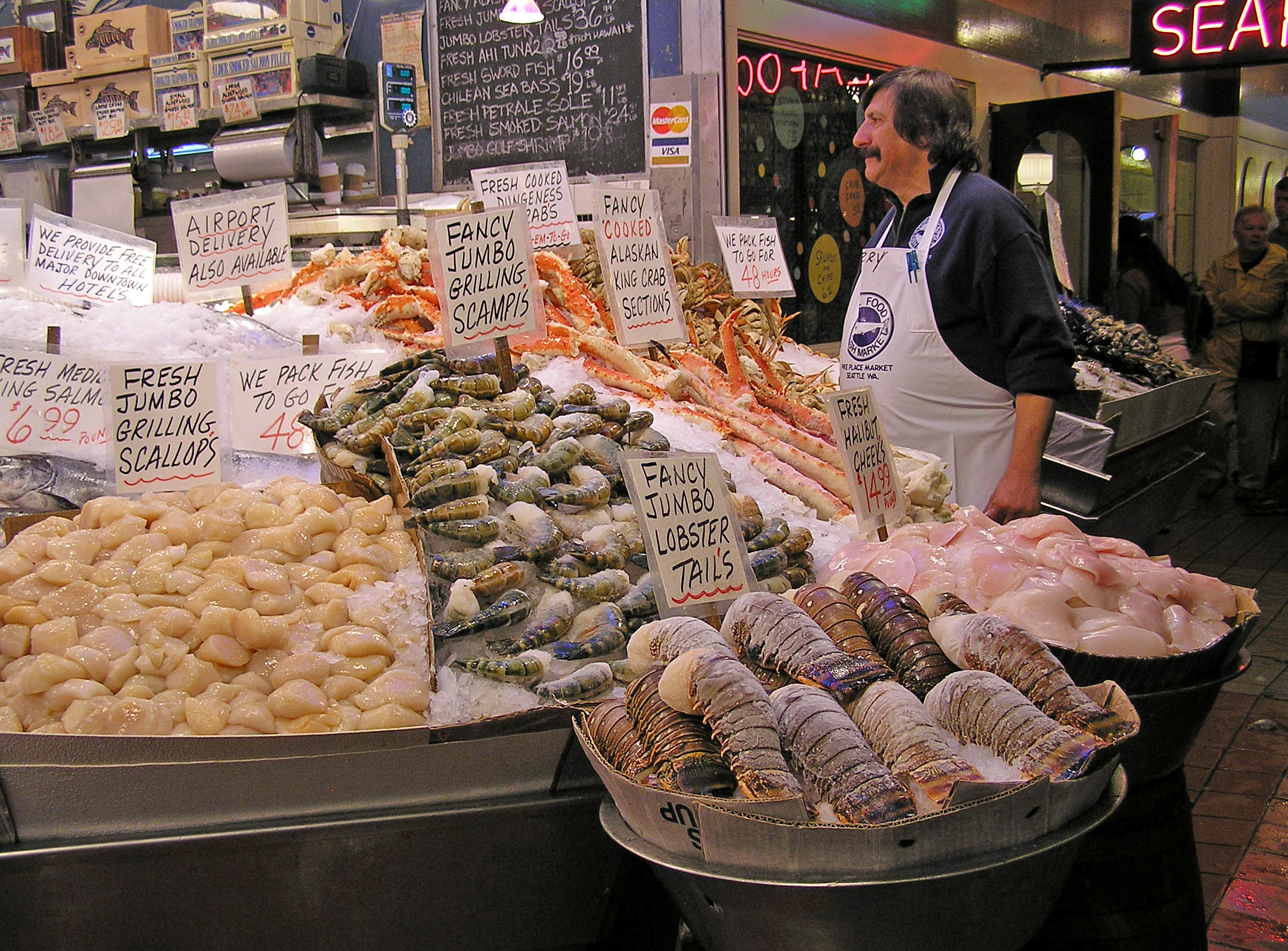|
George Grove
Sir George Grove (13 August 182028 May 1900) was an English engineer and writer on music, known as the founding editor of ''Grove's Dictionary of Music and Musicians''. Grove was trained as a civil engineer, and successful in that profession, but his love of music drew him into musical administration. When responsible for the regular orchestral concerts at the Crystal Palace, he wrote a series of programme notes from which eventually grew his musical dictionary. His interest in the music of Franz Schubert, which was neglected in England at that point in the nineteenth century, led him and his friend Arthur Sullivan to go to Vienna in search of undiscovered Schubert manuscripts. Their researches led to their discovery of the lost score of Schubert's ''Rosamunde'' music, several of his symphonies and other music in 1867, leading to a revival of interest in Schubert's work. Grove was the first director of the Royal College of Music, from its foundation in 1883 until his retireme ... [...More Info...] [...Related Items...] OR: [Wikipedia] [Google] [Baidu] |
Concordance (publishing)
A concordance is an alphabetical list of the principal words used in a book or body of work, listing every instance of each word with its immediate context. Concordances have been compiled only for works of special importance, such as the Vedas, Bible, Qur'an or the works of Shakespeare, James Joyce or classical Latin and Greek authors, because of the time, difficulty, and expense involved in creating a concordance in the pre- computer era. A concordance is more than an index, with additional material such as commentary, definitions and topical cross-indexing which makes producing one a labor-intensive process even when assisted by computers. In the precomputing era, search technology was unavailable, and a concordance offered readers of long works such as the Bible something comparable to search results for every word that they would have been likely to search for. Today, the ability to combine the result of queries concerning multiple terms (such as searching for words ne ... [...More Info...] [...Related Items...] OR: [Wikipedia] [Google] [Baidu] |
Westminster Abbey
Westminster Abbey, formally titled the Collegiate Church of Saint Peter at Westminster, is an historic, mainly Gothic church in the City of Westminster, London, England, just to the west of the Palace of Westminster. It is one of the United Kingdom's most notable religious buildings and since Edward the Confessor, a burial site for English and, later, British monarchs. Since the coronation of William the Conqueror in 1066, all coronations of English and British monarchs have occurred in Westminster Abbey. Sixteen royal weddings have occurred at the abbey since 1100. According to a tradition first reported by Sulcard in about 1080, a church was founded at the site (then known as Thorney Island) in the seventh century, at the time of Mellitus, Bishop of London. Construction of the present church began in 1245 on the orders of Henry III. The church was originally part of a Catholic Benedictine abbey, which was dissolved in 1539. It then served as the cathedral of the ... [...More Info...] [...Related Items...] OR: [Wikipedia] [Google] [Baidu] |
Dean (Christianity)
A dean, in an ecclesiastical context, is a cleric holding certain positions of authority within a religious hierarchy. The title is used mainly in the Roman Catholic Church, the Anglican Communion, and many Lutheran denominations. A dean's assistant is called a sub-dean. History Latin '' decanus'' in the Roman military was the head of a group of ten soldiers within a '' centuria'', and by the 5th century CE, it was the head of a group of ten monks. It came to refer to various civil functionaries in the later Roman Empire.''Oxford English Dictionary'' s.v.' Based on the monastic use, it came to mean the head of a chapter of canons of a collegiate church or cathedral church. Based on that use, deans in universities now fill various administrative positions. Latin ''decanus'' should not be confused with Greek ''diákonos'' (διάκονος),' from which the word deacon derives, which describes a supportive role. Officials In the Roman Catholic Church, the Dean of the Colle ... [...More Info...] [...Related Items...] OR: [Wikipedia] [Google] [Baidu] |
George Granville Bradley
George Granville Bradley (11 December 1821 – 13 March 1903) was an English divine, scholar, and schoolteacher, who was Dean of Westminster (1881–1902). Life George Bradley's father, Charles Bradley, was vicar of Glasbury, Brecon, mid Wales. Bradley was educated at Rugby under Thomas Arnold. He won an open scholarship at University College, Oxford, where in 1844 Bradley gained a first-class degree in '' literae humaniores''. He was immediately elected to a Fellowship at University and, in the following year, won the Chancellor's prize for the Latin essay. He was an assistant master at Rugby from 1846 to 1858, when he succeeded G.E.L. Cotton as Headmaster of Marlborough College in Wiltshire. In the same year he look Holy Orders. In 1870, Bradley was elected Master of his old college at Oxford. Under his mastership, he and the fellows of the college celebrated its apocryphal thousandth anniversary since its supposed founding by Alfred the Great. In 1874 he was appointed ... [...More Info...] [...Related Items...] OR: [Wikipedia] [Google] [Baidu] |
Clapham Common
Clapham Common is a large triangular urban park in Clapham, south London, England. Originally common land for the parishes of Battersea and Clapham, it was converted to parkland under the terms of the Metropolitan Commons Act 1878. It is of green space, with three ponds and a Victorian bandstand. It is overlooked by large Georgian and Victorian mansions and nearby Clapham Old Town. Holy Trinity Clapham, an 18th-century Georgian church overlooking the park, is important in the history of the evangelical Clapham Sect. Half of the park is within the London Borough of Wandsworth, and the other half is within the London Borough of Lambeth. History Originally common land for the parishes of Battersea and Clapham, William Hewer was among the early Londoners to build adjacent to it. Samuel Pepys, the diarist, died at Hewer's house in 1703. The land had been used for cricket in 1700 and was drained in the 1760s, and from the 1790s onwards fine houses were built around the co ... [...More Info...] [...Related Items...] OR: [Wikipedia] [Google] [Baidu] |
Preparatory School (United Kingdom)
A preparatory school (or, shortened: prep school) in the United Kingdom is a fee-charging independent primary school that caters for children up to approximately the age of 13. The term "preparatory school" is used as it ''prepares'' the children for the Common Entrance Examination in order to secure a place at an independent secondary school, typically one of the English public schools. They are also preferred by some parents in the hope of getting their child into a state selective grammar school. Most prep schools are inspected by the Independent Schools Inspectorate, which is overseen by Ofsted on behalf of the Department for Education. Overview Boys' prep schools are generally for 8-13 year-olds, who are prepared for the Common Entrance Examination, the key to entry into many secondary independent schools. Before the age of 7 or 8, the term "pre-prep school" is used. Girls' independent schools in England tend to follow the age ranges of state schools more closely than ... [...More Info...] [...Related Items...] OR: [Wikipedia] [Google] [Baidu] |
College Hall, London
College Hall is a fully catered hall of residence of the University of London. It is situated on Malet Street in the Bloomsbury district of London, United Kingdom. It is an intercollegiate hall, and as such provides accommodation for full-time students at constituent colleges and institutions of the University of London including King's College, University College, Queen Mary, the London School of Economics and the School of Oriental and African Studies amongst others. History Established in 1882, and initially located in Byng Place, It initially catered for female students (having been co-founded by educationalist and suffragist Annie Leigh Browne, Mary Stewart Kilgour, Mary Browne (Lady Lockyer) and Henrietta Müller)Jane Martin, ‘Browne, Annie Leigh (1851–1936)’, Oxford Dictionary of National Biography, Oxford University Press, 200accessed 12 Jan 2017/ref> The first Principal was Eleanor Grove who arranged for lease of the house in Byng Place, assisted by Rosa Morison, w ... [...More Info...] [...Related Items...] OR: [Wikipedia] [Google] [Baidu] |
Eleanor Grove
Eleanor Grove (1826 – 22 November 1905) was a British translator and educationist. She was the founding principal of College Hall in London that allowed women to live in Bloomsbury and attend the University of London. She and her life long partner, Rosa Morison, have a building named after them. Life Grove was born in Clapham in 1826. Her parents were Mary Blades and Thomas Grove, Her father was a dealer in fish and venison and he was a congregationalist. She had many siblings, one of whom was an elder brother, George, who became an engineer but is now known for '' Grove's Dictionary of Music and Musicians''. Grove's parents left her well provided for and she was able to decide how she would spend her life. She worked as a governess in Germany and in Austria and she translated two novels: ''An Egyptian Princess'' by Georg Ebers and '' Wilhelm Meister's Apprenticeship'' by Johann Wolfgang von Goethe. When a job was advertised at Queen's College, London for an assistant secr ... [...More Info...] [...Related Items...] OR: [Wikipedia] [Google] [Baidu] |
Venison
Venison originally meant the meat of a game animal but now refers primarily to the meat of antlered ungulates such as elk or deer (or antelope in South Africa). Venison can be used to refer to any part of the animal, so long as it is edible, including the internal organs. Venison, much like beef or pork, is categorized into specific cuts, including roast, sirloin, and ribs. Etymology The word derives from the Latin ''venari'', meaning "to hunt or pursue". This term entered the English language through Norman French ''venaison'' in the 11th century, following the Norman conquest of England and the establishment of Royal Forests. Definition ''Venison'' originally described meat of any game animal killed by hunting and was applied to any animal from the families '' Cervidae'' (true deer), '' Leporidae'' (rabbits and hares), ''Suidae'' ( wild boar) and certain species of the genus '' Capra'' ( goats and ibex). In southern Africa, the word ''venison'' refers to the ... [...More Info...] [...Related Items...] OR: [Wikipedia] [Google] [Baidu] |
Fishmonger
A fishmonger (historically fishwife for female practitioners) is someone who sells raw fish and seafood. Fishmongers can be wholesalers or retailers and are trained at selecting and purchasing, handling, gutting, boning, filleting, displaying, merchandising and selling their product. In some countries modern supermarkets are replacing fishmongers who operate in shops or fish markets. Worshipful Company of Fishmongers The fishmongers guild, one of the earliest guilds, was established in the City of London by a Royal Charter granted by Edward I shortly after he became king in 1272. Partnership with foreigners was forbidden and the sale of fish was tightly controlled to ensure freshness and restrain profit, which was limited to one penny in the shilling. Nevertheless, the guild grew rich and, after Edward's victory over the Scots, was able to make a great show, including one thousand mounted knights. During the reign of Edward II, the political power of the fishmongers waned ... [...More Info...] [...Related Items...] OR: [Wikipedia] [Google] [Baidu] |
Clapham
Clapham () is a suburb in south west London, England, lying mostly within the London Borough of Lambeth, but with some areas (most notably Clapham Common) extending into the neighbouring London Borough of Wandsworth. History Early history The present day Clapham High Street is on the route of a Roman road. The road is recorded on a Roman monumental stone found nearby. According to its inscription, the stone was erected by a man named Vitus Ticinius Ascanius. It is estimated to date from the 1st century. (The stone was discovered during building works at Clapham Common South Side in 1912. It is now placed by the entrance of the former Clapham Library, in the Old Town.) According to the history of the Clapham family, maintained by the College of Heralds, in 965 King Edgar of England gave a grant of land at Clapham to Jonas, son of the Duke of Lorraine, and Jonas was thenceforth known as Jonas "de fClapham". The family remained in possession of the land until Jonas's great- ... [...More Info...] [...Related Items...] OR: [Wikipedia] [Google] [Baidu] |
